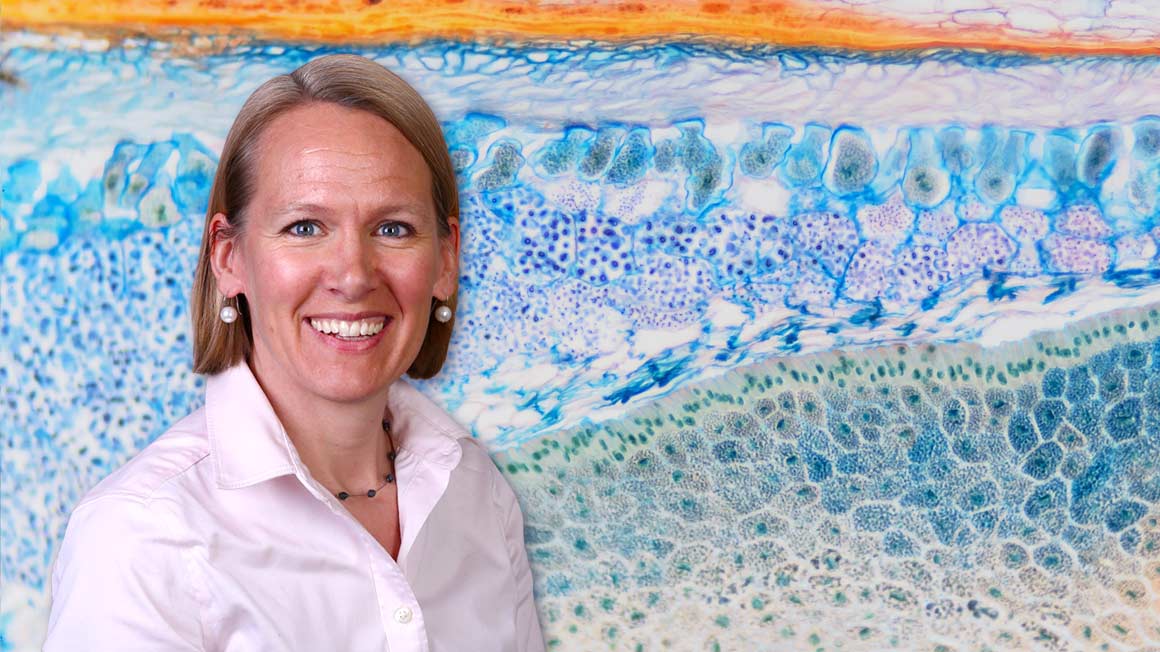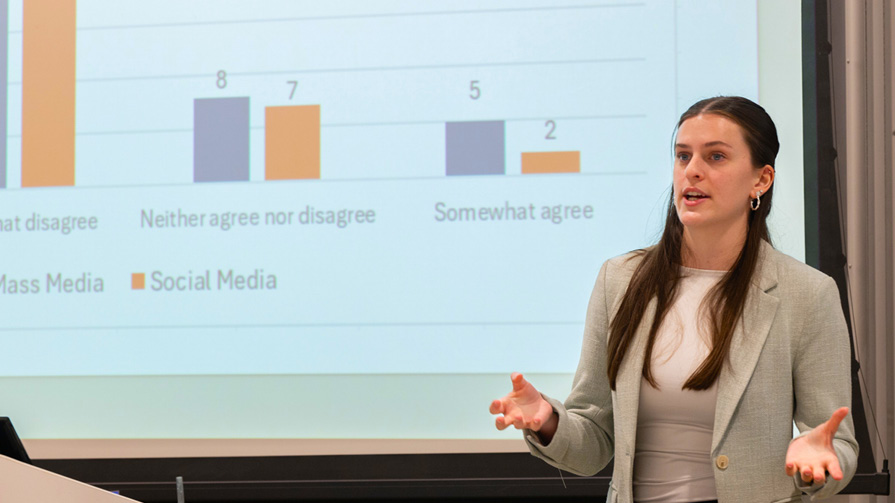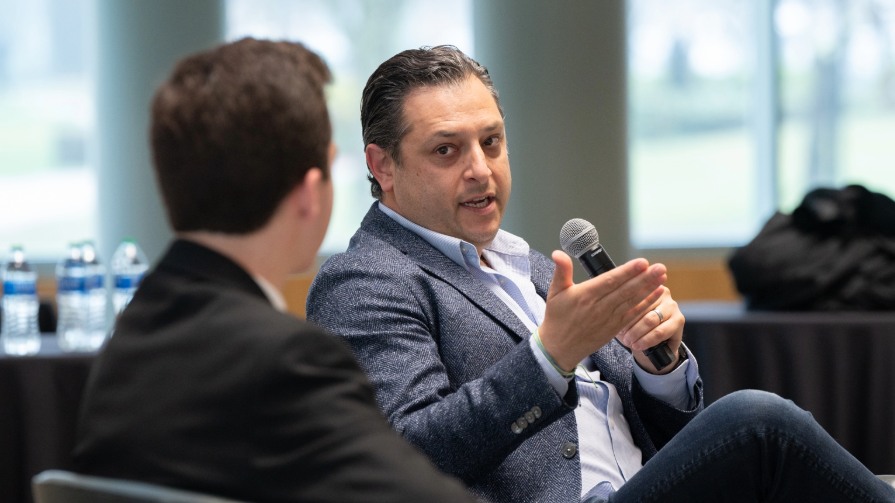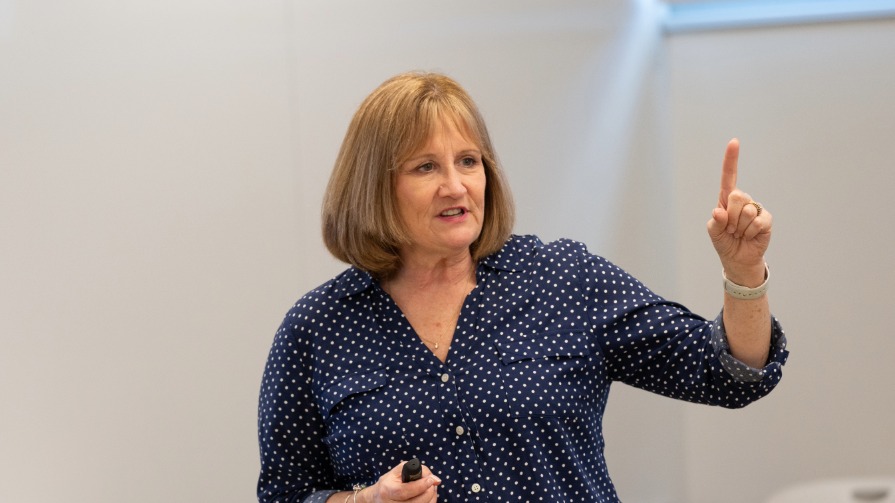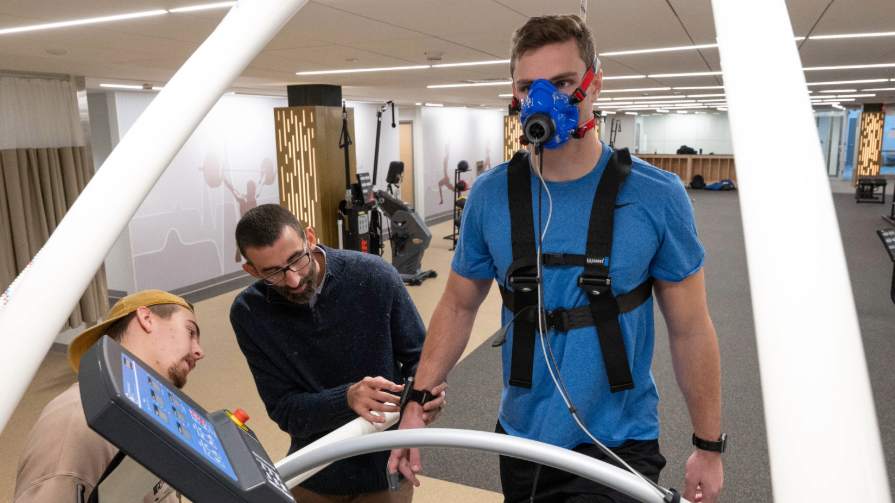Biology Coordinator and Lecturer of Science and Technology Stephanie Mott is known for her innovative and highly interactive labs that help students explore key scientific concepts and principles. “I love it when the students are really engaged, when they really get into their experiments, and when they end a lab and say that was a really cool experience,” Mott explains. “But, really, what is most fun for me is their little a-ha moments – when it really clicks for them and they say ‘now I get it, this is what it was all about.'”
With the switch to online learning necessitated by the COVID-19 pandemic Mott found herself with a dilemma: How do you hold a lab class when students are unable to utilize the labs? She had to find new ways to teach that ensured students would keep experimenting and keep saying “a-ha.”
All of the answers
“I see my role as a facilitator,” Mott says. “In my labs, I want to encourage students, and maybe even show them something that they haven't seen before, but I also want them to be the ones who actually do the experiments.”
Professor Mott "made it clear that her students should receive the same quality education we would if we were on campus.”
That methodology faced a challenge this semester with the shift to online learning. “I was hesitant at first about how the labs would go because of how hands-on they were and I didn’t know how I’d get the same kind of education with an online lab,” admits Marketing and Applied Analytics student Kylie Ratelle ’21, who took Mott’s lab and lecture courses this semester.
She didn’t have to worry. “Professor Mott answered all those questions,” she says. “Throughout the online transition, Professor Mott was nothing but the best. She made it clear that her students should receive the same quality education we would if we were on campus.”
Making it work
Mott’s solution to distance learning was to bring the lab to her students. By making online videos and streaming experiments she conducted at Bryant, she was able to take students step by step through the lab processes while maintaining the feeling of discovery.
"She finds a way to make the most of Zoom and makes us feel like we are in the classroom again!" notes Alexa Weber ’22, who also took the lab this past semester. "She gave us great videos to make it feel like we are actually doing the experiments and sometimes even gave us guidance on how we can do some experiments at home."
“She was always there to help us, even after class, and she took an interest in us not just students but as people.”
Mott also encouraged the students to make the outside world their lab as well. Usually, for the spring semester course, Mott’s classes head outdoors to study the ecosystems and algae of Bryant Pond. This semester, Mott had the students go out into their own communities, using appropriate safety precautions, to observe the animals and ecosystems around them. In the lab session, they worked out how those systems worked.
The students studied the wildlife of regions ranging from Maine to Wisconsin to Florida, expanding the class’s frontiers while enabling them to learn more about their own backyards.
In a new light
Mott’s teaching style and engaging labs shed new light on her studies, says Ratelle, even when they were conducted via Zoom. “I’m a visual learner, and I’m really hands-on,” she explains. “I really appreciated that you’re able to take the material from the course, and not just listen to a lecture on it but experience it yourself.”
“We all did it together for the first time. And I think we all had fun.”
Labs that allowed her to actually see the concepts and chemical reactions the class was studying made a world of difference. “It sort of engraves itself on your brain,” says Ratelle. “Whenever I was tested on the material, I thought back to our labs where I had seen it come to life.”
She also appreciated the personal attention Mott gave to each student. “She was always there to help us, even after class,” Ratelle says. “And she took an interest in us not just students but as people.”
A successful experiment
At the end of the semester, the online lab experiment was a success, says Mott. “Our students did a really great job. They are resilient, they were up for anything. They were willing to go along and adapt to this new reality and figure out the best way to do it.
“We all did it together for the first time,” she adds. “And I think we all had fun.”
For Ratelle, who wasn’t much of a fan of science classes in high school, the course was an eye-opener. “Now,” she says “I’m starting to think about what other courses I can take in the same area.”
